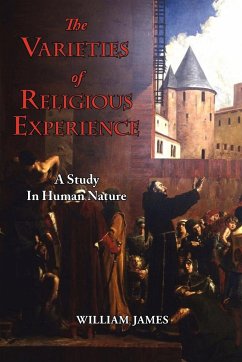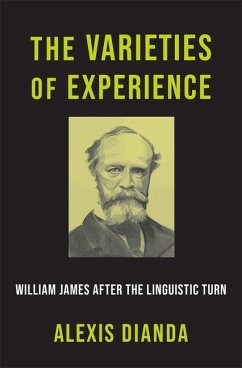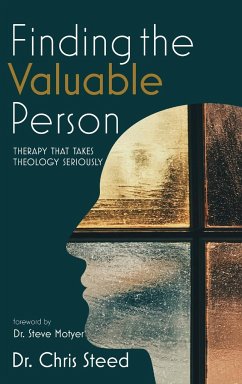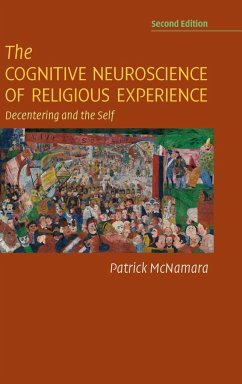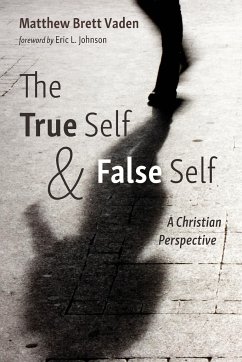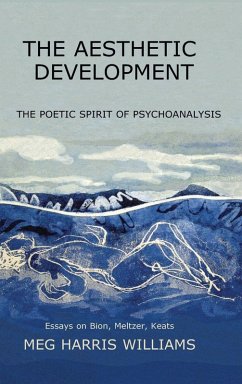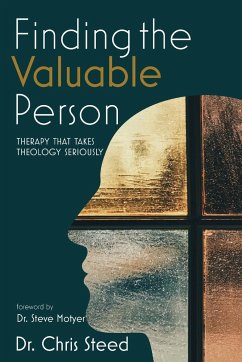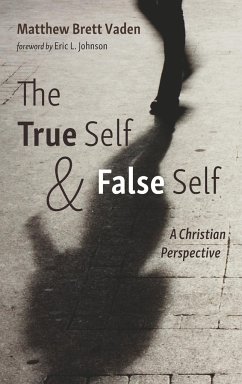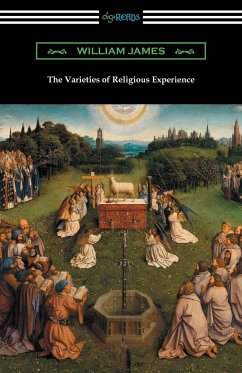
The Varieties of Religious Experience
Versandkostenfrei!
Versandfertig in 1-2 Wochen
16,99 €
inkl. MwSt.

PAYBACK Punkte
8 °P sammeln!
First published in 1902, "The Varieties of Religious Experience" is William James' philosophical and psychological examination of the nature of religion in human civilization. Based on James's own Gifford Lectures given at the University of Edinburgh in Scotland between 1901 and 1902, James argues that "Scientific theories are organically conditioned just as much as religious emotions are; and if we only knew the facts intimately enough, we should doubtless see 'the liver' determining the dicta of the sturdy atheist as decisively as it does those of the Methodist under conviction anxious about...
First published in 1902, "The Varieties of Religious Experience" is William James' philosophical and psychological examination of the nature of religion in human civilization. Based on James's own Gifford Lectures given at the University of Edinburgh in Scotland between 1901 and 1902, James argues that "Scientific theories are organically conditioned just as much as religious emotions are; and if we only knew the facts intimately enough, we should doubtless see 'the liver' determining the dicta of the sturdy atheist as decisively as it does those of the Methodist under conviction anxious about his soul. When it alters in one way the blood that percolates it, we get the Methodist, when in another way, we get the atheist form of mind." William James' examination of the psychology of religion in this work arose out of a perceived need for the academic study of the subject. The concepts put forth here would later be developed into James' philosophy of pragmatism, which he expounded upon in his 1907 work "Pragmatism". "The Varieties of Religious Experience" has been acknowledged as a monumental work of modern psychology ever since its original publication. This edition is printed on premium acid-free paper.





